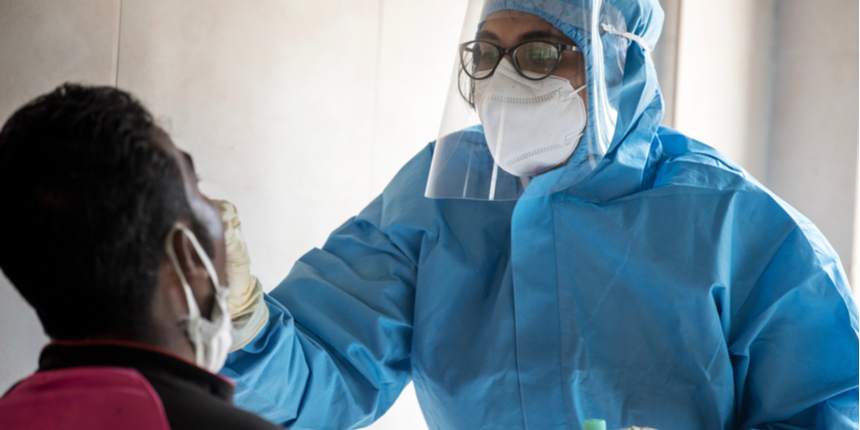No new virus strain behind spate of Covid-19 deaths in University: AMU official
Press Trust of India | May 17, 2021 | 08:42 AM IST | 2 mins read
At least 38 AMU teachers, including 17 serving ones, have died of Covid or Covid-like symptoms in the last one month.

ALIGARH: Genome sequencing of Covid-19 samples has not found any new coronavirus strain behind the infection around the AMU campus, university authorities said Sunday as another member of their fraternity died.
Professor Abu Qamar, 75, the former dean of the Faculty of Medicine in the Jawaharlal Nehru Medical College and Hospital died here on Sunday of Covid-19 after battling it for nearly three weeks, JNMC Principal Shahid Ali Siddiqui said. Prof Qamar died two days after AMU’s former proctor, Prof Nasim Beg, 76, died in a New Delhi hospital where he was shifted to and admitted after his condition worsened here, his family members said.
At least 38 AMU teachers, including 17 serving ones, have died of Covid or Covid-like symptoms in the last one month, triggering doubts if any new deadly strain of the virus has been in circulation on the AMU campus. These doubts also prompted the varsity’s JNMC authorities to send Covid-19 samples from the AMU campus and its neighbouring Civil Lines area for genome sequencing to the CSIR-Institute of Genomics and Integrative Biology in New Delhi.
No new strain of coronavirus has been detected in samples sent for genome sequencing to the CSIR in New Delhi, said a senior JNMC official, in a relief to the hospital’s beleaguered staff who have been on the edge following a large number of deaths of the serving and retired AMU employees.
Prof Haris Manzoor Khan, the head of the JNMC’s Department of Microbiology and the principal investigator of the AMU’s Viral Research and Diagnostic Laboratory, said out of the 20 samples sent to CSIR for genome sequencing, 18 (90 percent) had B.1.617.2 lineage referred to as the double mutation variant, first identified in Maharashtra on October 5, 2020. It is a subtype of B.1.617 variant which is the main virus circulating in the second wave of COVID-19 in Uttar Pradesh, he added.
The WHO has described it as a “Variant of Concern” because of its higher transmissibility and reduced neutralization from pre-existing antibodies, he said. B.1.617 has a higher growth rate than other circulating variants suggesting a potentially increased rate of transmission.
Write to us at news@careers360.com.
Follow us for the latest education news on colleges and universities, admission, courses, exams, research, education policies, study abroad and more..
To get in touch, write to us at news@careers360.com.